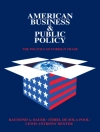The economy of India is growing at a rate of 8 percent per year, and its exports of goods and services have more than doubled in the past three years. Considering these trends, economists, scholars, and political leaders across the globe are beginning to wonder whether India’s growth can be sustained.
The contributors to this volume analyze the forces behind India’s emerging role as a world economic player and identify the hidden weaknesses that, if unaddressed, may slow the cou...
The economy of India is growing at a rate of 8 percent per year, and its exports of goods and services have more than doubled in the past three years. Considering these trends, economists, scholars, and political leaders across the globe are beginning to wonder whether India’s growth can be sustained.
The contributors to this volume analyze the forces behind India’s emerging role as a world economic player and identify the hidden weaknesses that, if unaddressed, may slow the country’s growth. Chapters suggest how to transform India’s primarily rural population into a gainfully employed modern sector; methods to achieve fiscal sustainability and consolidation; infrastructure bottlenecks, especially in terms of finite energy resources; and, given the country’s complex electoral government and global political position, the obstacles toward effecting policy reform.
Sustaining India’s Growth Miracle is a valuable resource for practitioners, policymakers, students, and scholars. It tackles issues from political, economic, and academic perspectives, and the concluding chapter, a talk given by the commerce and industry minister of India, discusses the country’s position as a world power, outlining several reasons for its success and exploring the difficulties that lie ahead.












